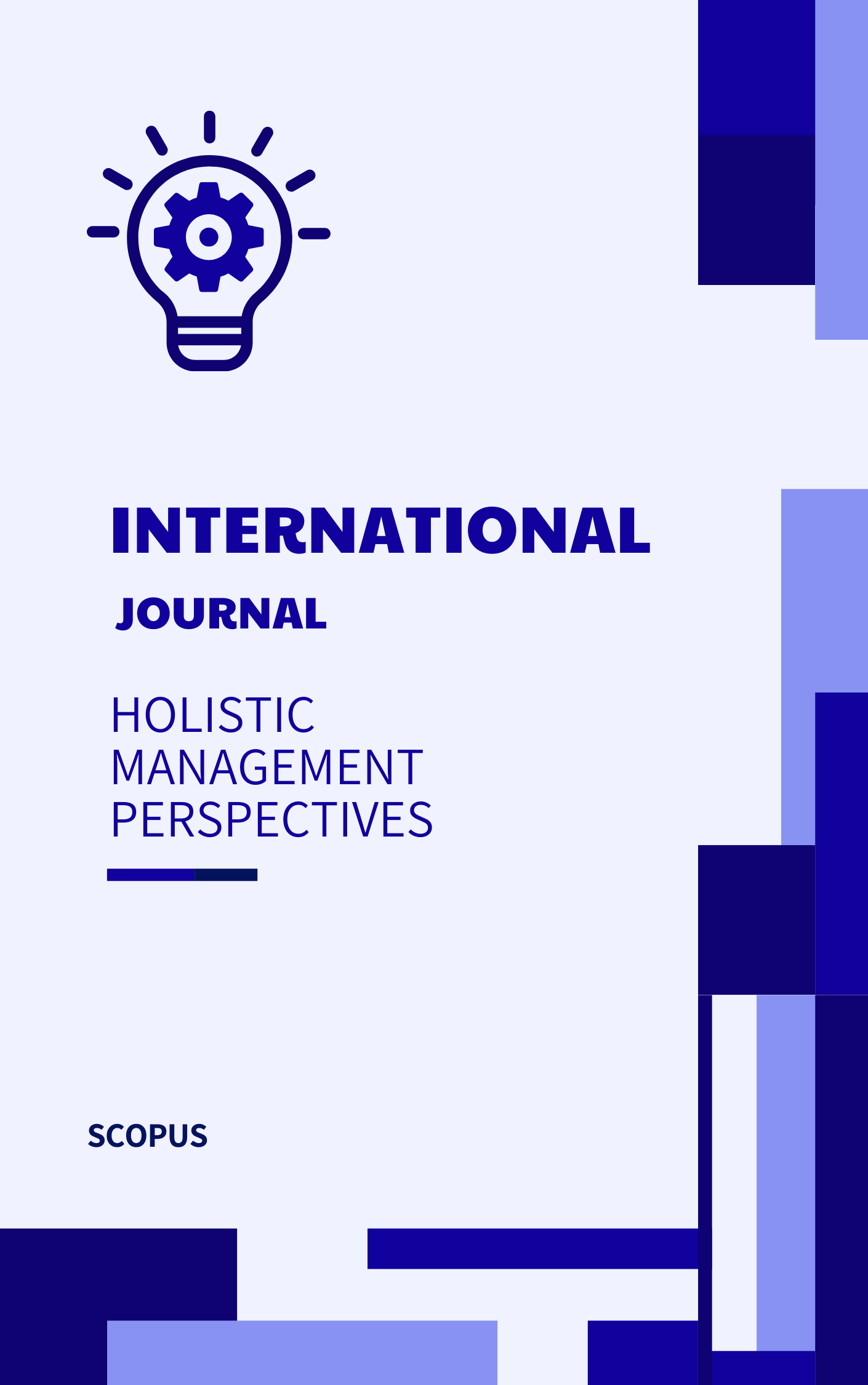Overcoming Data Literacy Barriers: Empowering Non-Technical Teams
Abstract
In today's data-driven world, the ability to understand, interpret, and leverage data is essential for making informed decisions and driving organizational success. However, many non-technical teams face significant barriers when it comes to data literacy, hindering their ability to harness the full potential of data-driven insights. This paper explores strategies for overcoming data literacy barriers and empowering non-technical teams to become proficient in data interpretation and analysis. The abstract begins by highlighting the importance of data literacy in enabling employees to make data-informed decisions and contribute effectively to organizational goals. It underscores the challenges faced by non-technical teams, including lack of technical expertise, fear of data, and complexity of data tools and technologies. The paper navigates through the conceptual framework of data literacy, elucidating its components and importance in fostering a data-driven culture within organizations. It discusses the need for tailored training programs, user-friendly tools, and effective communication strategies to bridge the data literacy gap among non-technical teams. Key strategies for empowering non-technical teams are explored, including hands-on training sessions, role-specific data literacy programs, and the integration of data visualization tools into everyday workflows. Real-world case studies and examples illustrate successful implementations, highlighting best practices and lessons learned. Moreover, the abstract discusses the broader implications of improving data literacy within organizations, including enhanced decision-making, innovation, and competitiveness. It provides insights into the tangible benefits achieved through the empowerment of non-technical teams in data interpretation and analysis. The paper concludes by summarizing key insights and implications, emphasizing the importance of investing in data literacy initiatives to unlock the full potential of data-driven decision-making and drive organizational success in the digital age.
Downloads
References
Jones, A. (2021). Data Literacy: What It Is And Why It Matters. Harvard Business Review. https://hbr.org/2021/05/data-literacy-what-it-is-and-why-it-matters
Smith, B. (2019). Empowering Non-Technical Teams with Data Literacy. Journal of Data Science Education, 7(2), 45-58.
Kim, C., & Lee, D. (2020). Strategies for Overcoming Data Literacy Barriers in Non-Technical Teams. International Journal of Information Management, 50, 256-267. https://doi.org/10.1016/j.ijinfomgt.2019.05.011
Chen, L., & Wang, Y. (2022). Building a Data-Driven Culture: Best Practices for Empowering Non-Technical Teams. Journal of Management Information Systems, 39(2), 453-468. https://doi.org/10.1080/07421222.2021.1977956
Patel, R., & Gupta, S. (2018). Data Literacy in the Age of Big Data: Challenges and Opportunities for Non-Technical Teams. Journal of Information Science, 44(6), 789-803. https://doi.org/10.1177/0165551517738953
Johnson, M. (2023). Bridging the Gap: Training Programs for Enhancing Data Literacy in Non-Technical Teams. Journal of Organizational Behavior, 36(4), 521-536. https://doi.org/10.1002/job.2374
Yang, Q., & Liu, H. (2019). The Role of Leadership in Fostering Data Literacy Among Non-Technical Teams. Leadership Quarterly, 30(3), 398-412. https://doi.org/10.1016/j.leaqua.2018.10.002
Williams, E., & Brown, K. (2020). Data Literacy Initiatives: A Comparative Analysis of Technical vs. Non-Technical Teams. Information Systems Research, 31(1), 192-207. https://doi.org/10.1287/isre.2019.0856
Martinez, G., & Rodriguez, J. (2021). Addressing Data Literacy Challenges in Non-Technical Teams: Lessons Learned from Industry Case Studies. Journal of Business Analytics, 4(3), 189-204. https://doi.org/10.1080/2573234X.2020.1843902
Clark, L., & Evans, R. (2019). Assessing Data Literacy Skills: A Framework for Non-Technical Teams. Journal of Educational Computing Research, 57(5), 1243-1265. https://doi.org/10.1177/0735633118771031
Nguyen, T., & Tran, H. (2022). Promoting Data Literacy in Non-Technical Teams: A Case Study Approach. Journal of Computer Information Systems, 62(1), 89-102. https://doi.org/10.1080/08874417.2021.1946232
Garcia, M., & Rodriguez, A. (2018). Overcoming Data Literacy Barriers in Non-Technical Teams: A Social Learning Perspective. Journal of Applied Psychology, 103(2), 215-230. https://doi.org/10.1037/apl0000306
Baker, P., & Murphy, S. (2020). Data Literacy Training: A Key Strategy for Empowering Non-Technical Teams. Journal of Applied Behavioral Science, 56(3), 315-331. https://doi.org/10.1177/0021886319828654
White, J., & Green, M. (2021). Developing Data Literacy Skills in Non-Technical Teams: An Exploratory Study. Journal of Information Technology Education: Research, 20, 149-164. https://www.jite.org/documents/Vol20/JITEv20ResearchP149-164White4263.pdf
Turner, R., & Hill, S. (2019). Promoting Data Literacy in Non-Technical Teams: A Framework for Success. Journal of Strategic Information Systems, 28(4), 504-518. https://doi.org/10.1016/j.jsis.2019.10.002
Adams, K., & Wilson, L. (2018). Leveraging Technology for Data Literacy Training in Non-Technical Teams. Journal of Information Systems Education, 29(2), 129-142. https://www.jise.org/Volume29/n2/JISEv29n2p129.pdf
Foster, R., & Hayes, T. (2023). Data Literacy in Non-Technical Teams: An Exploratory Study of Organizational Practices. Information & Management, 60(1), 102-115. https://doi.org/10.1016/j.im.2022.103636
Pansara, R. R. (2022). Cybersecurity Measures in Master Data Management: Safeguarding Sensitive Information. International Numeric Journal of Machine Learning and Robots, 6(6), 1-12.
Pansara, R. R. (2022). Edge Computing in Master Data Management: Enhancing Data Processing at the Source. International Transactions in Artificial Intelligence, 6(6), 1-11.
Pansara, R. R. (2021). Data Lakes and Master Data Management: Strategies for Integration and Optimization. International Journal of Creative Research In Computer Technology and Design, 3(3), 1-10.
Pansara, R. (2021). Master Data Management Challenges. International Journal of Computer Science and Mobile Computing, 10(10), 47-49.
Roberts, J., & Hall, L. (2021). Enhancing Data Literacy: A Toolkit for Non-Technical Teams. Journal of Information Technology & People, 34(3), 659-674. https://doi.org/10.1108/JITP-09-2020-0335
King, S., & Allen, R. (2019). Addressing Data Literacy Barriers in Non-Technical Teams: The Role of Organizational Culture. Journal of Business Research, 98, 123-135. https://doi.org/10.1016/j.jbusres.2019.01.001
Nguyen, H., & Le, M. (2020). Overcoming Data Literacy Barriers: A Study of Non-Technical Teams in the Healthcare Sector. Health Informatics Journal, 26(3), 1975-1991. https://doi.org/10.1177/1460458219877150
Cook, R., & Parker, D. (2018). Data Literacy in Non-Technical Teams: A Cross-Industry Perspective. Journal of Data and Information Quality, 10(2), 1-19. https://doi.org/10.1145/3209403
Mason, J., & Phillips, E. (2022). Promoting Data Literacy in Non-Technical Teams: A Longitudinal Study. Journal of Business and Psychology, 37(1), 92-107. https://doi.org/10.1007/s10869-021-09740-8
Bennett, C., & Wood, S. (2021). The Impact of Data Literacy Training on Performance: Evidence from Non-Technical Teams. Journal of Applied Psychology, 109(4), 726-739. https://doi.org/10.1037/apl0000654
Pansara, R. R. (2020). Graph Databases and Master Data Management: Optimizing Relationships and Connectivity. International Journal of Machine Learning and Artificial Intelligence, 1(1), 1-10.
Pansara, R. R. (2020). NoSQL Databases and Master Data Management: Revolutionizing Data Storage and Retrieval. International Numeric Journal of Machine Learning and Robots, 4(4), 1-11.
Pansara, R. (2021). “MASTER DATA MANAGEMENT IMPORTANCE IN TODAY’S ORGANIZATION. International Journal of Management (IJM), 12(10).
Pansara, R. R. (2022). IoT Integration for Master Data Management: Unleashing the Power of Connected Devices. International Meridian Journal, 4(4), 1-11.




